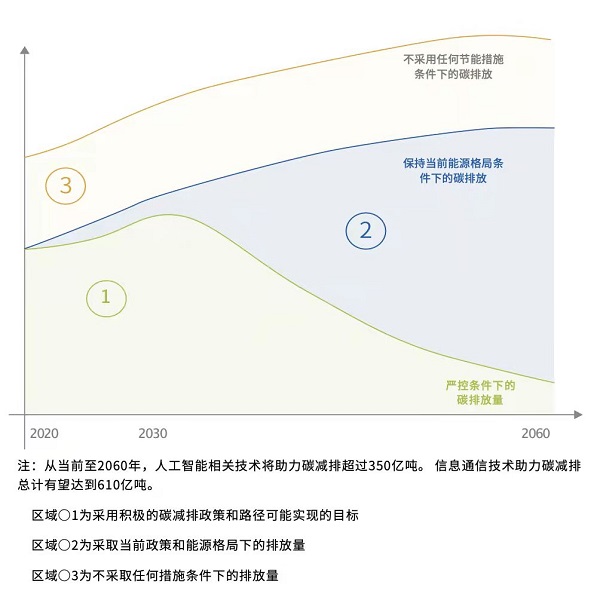The first domestic report focusing on AI to help “dual-carbon” goals is released. Baidu will promote 70 million tons of carbon reduction in transportation by 2030Fly into the homes of ordinary people
Xinmin Evening News (Reporter Jin Zhigang) Today, at the “Green Double Carbon” forum of Baidu AI Developer Conference 2021, Baidu and IDC jointly launched “Smart Carbon Reduction, Stimulating Green Transformation Power-China Artificial Intelligence Helps “Double Carbon” in 2021 The “Goal Achievement White Paper” was officially released and publicly launched. From now on, users can log on to the Baidu ESG website (esg.baidu.com) to browse and download the first domestic report focusing on AI’s “dual carbon” goal. Li Yanhong, the founder, chairman and CEO of Baidu, stated in the opening remarks that Baidu is using the advantages of AI technology to seek the optimal solution for carbon reduction in the entire chain of the intelligent transportation system through the promotion of autonomous driving and vehicle-road collaboration; the future will be related to the ecological system. Together with partners, we are committed to investing resources and using AI to help “zero-carbon growth”.
Source/Photo provided by interviewee
Shang Guobin, vice president of Baidu and general manager of the intelligent transportation business unit, analyzed in the subsequent keynote speech that one of the key values of intelligent transportation is to solve the carbon emission problem from the root through the “vehicle and road” overall plan. It is expected to be 2030 Baidu will promote urban transportation to reduce carbon emissions by 70 million tons. This volume is roughly equivalent to 8% of the country’s overall carbon emissions in 2020.
Shang Guobin’s prediction also echoes the results of the quantification research on the carbon emission reduction effect of intelligent transportation jointly conducted by Baidu and the Academy of Sciences of the Ministry of Transport. At the “Green Double Carbon” forum, the “Evaluation Research on the Benefits of Intelligent Transportation Technology for Carbon Emission Reduction” (hereinafter referred to as “Evaluation Research”) publicly disclosed the research progress for the first time. The “Evaluation Research” is based on the Baoding Intelligent Transportation (Baoding AI Traffic Management Brain) project and its implementation effects, by identifying key influencing factors such as roads, vehicles, congestion, and emission intensity, and by queuing vehicles, intersection phase, intersection traffic efficiency, etc. The data is modeled and simulated, an evaluation model is proposed, and the average carbon emission reduction achieved at each intersection can be calculated by 138.6 tons/year, and the emission reduction rate is 20% to 30%. This is an innovative exploration in the calculation of intelligent transportation to help realize carbon emission reduction.
In this regard, Li Zhenyu, director of the Policy Standards Office of the Urban Transport and Rail Transit Research Center of the Ministry of Transport, said: “At present, my country’s urban transport is accelerating its transformation and development. Intelligent transportation technologies such as intelligent information control systems will have broader application prospects. We need to carry out more relevant research to prove its carbon emission reduction effect. It is believed that intelligent transportation technology will make more important contributions in helping to achieve the dual carbon goals of the country and transportation.”
Not only intelligent transportation, the path to achieve carbon neutrality must be a process of technology-intensive use. The technological breakthrough of artificial intelligence will be applied to various industries through the use of information and communication technology infrastructure, and will be used in various industries to reduce carbon technology and applications. Combine them to achieve great potential. At the “Green Double Carbon” forum, Pan Jiahua, a member of the Chinese Academy of Social Sciences, deputy director of the National Committee of Experts on Climate Change, and well-known economist, in a dialogue with Baidu Vice President Li Shuo, believes that artificial intelligence can improve the market competitiveness of new energy and energy Safety of production and supply.
Pan Jiahua pointed out that the replacement of fossil energy with new energy is the general trend in response to global climate change. The current intermittent problems in the supply of new energy can be solved through the rational deployment of wind, solar, and hydropower, including biomass energy and energy storage. However, if such a deployment relies on manual judgment, it will have a time lag effect. In this process, the power cannot be interrupted, even for one millisecond. This requires artificial intelligence to quickly and extensively identify information sources, conduct integrated output, and ensure the coordination, stability, safety, and security of multiple functions.
Editor: Zhuang Qixin
.
